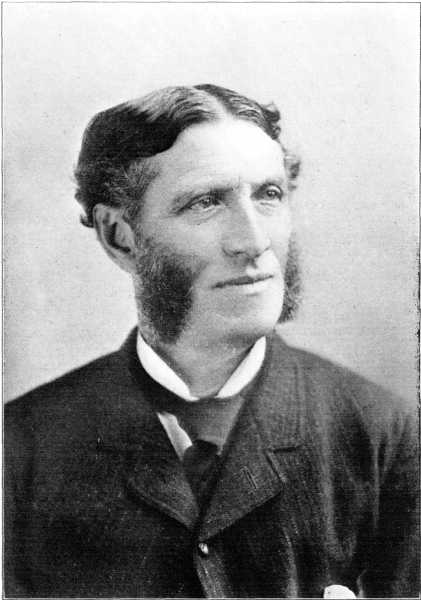
Matthew Arnold was born in Laleham, England in 1822. While probably more well known for his literary criticism than his poetry, Arnold wrote Dover Beach (1867), which has rightly become a much praised poem of the Victorian era and is referenced in works such as Farenheit 451 and Ian McEwan's Saturday. American composer Samuel Barber set Dover Beach for Baritone and String Quartett - that's well worth a listen if you like the poem . The linked recording is the original and the other Barber pieces on it are marvelous as well. If you've never heard Summer of Knoxville 1915, it's Barber's setting of excerpts from James Agee's Death in the Family and it's gorgeous.
I've heard some describe the poem as dealing with faith and others see sexual themes. My reading is much more straightfoward - while there is beauty apparent in the world, it cannot give us ultimate relief from pain and loneliness. In experiencing the mystery, uncertainty and violence of our reality there are many things we cannot ever know so, the poet pleads, let us at least be loving toward each other. It's a great poem. I think I'll let it stand alone. For those of you wanting a richer analysis, Paul Muldoon in The End of the Poem devotes an entire chapter to Dover Beach.
In coming weeks I'm thinking about Stevie Smith and Denise Lervetov - any other ideas?
Dover Beach
The sea is calm to-night,
The tide is full, the moon lies fair
Upon the straits; -- on the French coast the light
Gleams and is gone; the cliffs of England stand,
Glimmering and vast, out in the tranquil bay.
Come to the window, sweet is the night-air!
Only, from the long line of spray
Where the sea meets the moon-blanch'd land,
Listen! you hear the grating roar
Of pebbles which the waves draw back, and fling,
At their return, up the high strand,
Begin, and cease, and then again begin,
With tremulous cadence slow, and bring
The eternal note of sadness in.
Sophocles long ago
Heard it on the Aegean, and it brought
Into his mind the turbid ebb and flow
Of human misery; we
Find also in the sound a thought,
Hearing it by this distant northern sea.
The sea of faith
Was once, too, at the full, and round earth's shore
Lay like the folds of a bright girdle furl'd.
But now I only hear
Its melancholy, long, withdrawing roar,
Retreating, to the breath
Of the night-wind, down the vast edges drear
And naked shingles of the world.
Ah, love, let us be true
To one another! for the world which seems
To lie before us like a land of dreams,
So various, so beautiful, so new,
Hath really neither joy, nor love, nor light,
Nor certitude, nor peace, nor help for pain;
And we are here as on a darkling plain
Swept with confused alarms of struggle and flight,
Where ignorant armies clash by night.
















5 comments:
There is a legend he wrote this poem on his wedding night.
I had heard that he wrote it when a newly wed - I hadn't heard it dated that specifically! I hope his bride liked poetry.
As far as I'm concerned - the language from "Ah, love" until the end is just about as good as poetry gets.
Sheila, it's a stunner isn't it? And I find it amazing how, with the undercurrent of pentameter, I never get the feeling that he's struggling to make the words fit the rhythm - only that they do.
I can't remember how I was lead to this poem, but I think it was a reference to it in a book, probably a novel. For me it always described with remarkable specificity the impossible promises of human progress.
Post a Comment